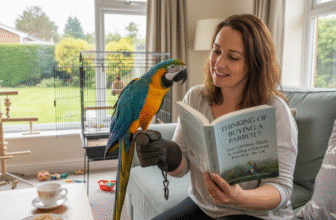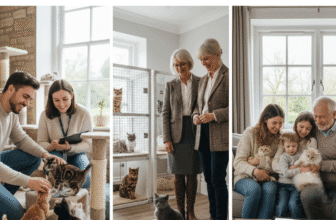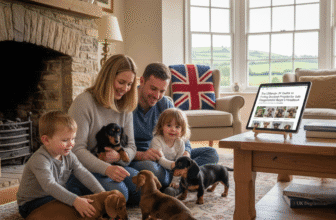
Kittens for Sale Near Me: Your Ultimate Guide to Finding a Furry Friend in the UK
The decision has been made. Your home, and your heart, are ready for the pitter-patter of tiny paws. The search begins, often with a simple, hopeful tap into a search engine: “kittens for sale near me.” It’s an exciting moment, filled with visions of fluffy bundles of joy, playful antics, and cosy cuddles. But this initial search is just the first step on a journey that requires patience, diligence, and a healthy dose of responsibility. Bringing a kitten into your life is a commitment that can span two decades, and finding the right, healthy, and well-socialised feline friend is the most crucial part of that commitment.
This guide is here to walk you through every stage of that process here in the UK. We’ll delve into the great debate of adoption versus buying from a breeder, highlight the red flags to watch out for, and prepare you for the questions you need to ask. Let’s turn that simple search into a successful and joyful mission to find your perfect companion.
The First Big Decision: Adopting from a Rescue or Buying from a Breeder?
Before you even start looking at adorable pictures online, it’s vital to understand the two main avenues for acquiring a kitten: adoption from a registered charity or animal rescue, or purchasing from a cat breeder. Both can lead to a wonderful pet, but they are very different paths.

The Heartwarming Path of Adoption
Across the United Kingdom, thousands of kittens and cats are waiting in shelters for a second chance at a loving home. Organisations like the RSPCA, Cats Protection, Blue Cross, and countless smaller, independent rescues do incredible work caring for abandoned, stray, and unwanted felines.
- You Are Saving a Life: This is the most profound reason to adopt. By choosing a rescue kitten, you are not only giving that animal a home but also freeing up a space in the shelter for another cat in need. You become a direct part of the solution to the UK’s pet overpopulation problem.
- Health is a Priority: Rescue centres are meticulous about the health of their animals. A kitten from a reputable rescue will have been given a thorough veterinary check-up, will have started its course of vaccinations, been treated for fleas and worms, and will almost certainly be microchipped. The adoption fee, which is usually between £80 and £150, often includes the cost of neutering or spaying, or a voucher towards it. This represents incredible value and peace of mind.
- Temperament Matching: The dedicated staff and volunteers at rescue centres spend their days with the kittens. They get to know their individual personalities – who is the bold adventurer, the gentle soul, the playful mischief-maker. They can provide invaluable insight to help match you with a kitten whose temperament fits your lifestyle, family, and home environment.
- The Adoption Process: Reputable rescues have a thorough process for a reason: they want to ensure their kittens go to permanent, suitable homes. This typically involves an application form, a conversation with the team, and sometimes a home check (which can often be done virtually now). Don’t be put off by this; see it as a sign that they care deeply about the welfare of their animals.
The Considered Choice of a Reputable Breeder
Perhaps you have your heart set on a specific breed. You might adore the placid nature of a Ragdoll, the striking looks of a Bengal, or the intelligent chatter of a Siamese. In this case, finding a reputable breeder is your goal. The key word here is ‘reputable’.
- Predictable Traits: When you buy a pedigree kitten, you have a much better idea of the size, coat type, and general temperament the cat will have as an adult. This can be important for families with specific requirements or allergies (though no cat is truly hypoallergenic).
- Known History: A good breeder will be able to tell you all about your kitten’s lineage. They will have carefully selected the parent cats for health, temperament, and conformity to the breed standard. You get to meet the mother cat (the queen) and see the environment the kittens have been raised in from birth.
- What Defines ‘Reputable’?: A reputable breeder is not just someone whose cat has had kittens. They are dedicated hobbyists who prioritise the health and welfare of their chosen breed above all else. They will be registered with an official body like the Governing Council of the Cat Fancy (GCCF) or The International Cat Association (TICA). However, registration alone is not enough. A good breeder will perform genetic testing for common hereditary diseases in their breed (like HCM in Ragdolls or PKD in Persians), raise the kittens within their home as part of the family, and invest heavily in their socialisation. They will be a font of knowledge and offer a lifetime of support.
The Search Begins: Where to Look and What to Avoid
Now you know what you’re looking for, where do you start? Your search strategy should be as careful as your decision-making process.
The Good Places to Start Your Search
- Rescue Centre Websites: The websites for Cats Protection, RSPCA, Blue Cross, and other national charities have searchable databases of cats available for adoption in your local area. Also, search for smaller, independent rescues in your county – they often have dedicated social media pages.
- Official Breed Clubs: If you’re seeking a pedigree, the official UK breed club for your chosen breed is the best place to start. They will often have a list of member breeders and may even list available kittens. This is a far safer bet than a random online search.
- GCCF/TICA Breeder Lists: The GCCF and TICA websites have searchable lists of registered breeders. This can be a good starting point for finding breeders in your region.
The Platforms to Navigate with Extreme Caution
Websites like Pets4Homes, Gumtree, and Facebook Marketplace can feel like a tempting one-stop shop, but they are fraught with risks. While some legitimate breeders and even rescues may use these platforms to advertise, they are also the primary marketplace for kitten farms, backyard breeders, and scammers.
Kitten farms are horrific commercial operations where cats are bred relentlessly in poor conditions, with no regard for their health or welfare. Kittens from these places are often sick, unsocialised, and taken from their mothers far too young. Backyard breeders are typically well-meaning but ignorant individuals who have let their pet cat have a litter without understanding the complexities of genetics, health screening, and proper socialisation.
Spotting the Red Flags: Your Buyer’s Defence Guide
Whether you’re dealing with someone who claims to be a breeder or just a private seller, you must become a detective. Your vigilance is the only thing protecting you from heartache and protecting kittens from exploitation. Watch for these glaring red flags:
- The kitten is under 12 weeks old: A responsible breeder will not let a kitten go to a new home before 12-13 weeks. This period is crucial for learning social skills from their mother and siblings, building immunity, and being properly weaned. A seller offering an 8-week-old kitten is a massive red flag.
- They offer to deliver or meet you somewhere: A reputable seller will insist you visit their home. They want to meet you and they will want you to see the kitten with its mother and littermates in its home environment. Offering to meet in a car park or deliver the kitten is a classic tactic used by kitten farmers to hide the dreadful conditions the animals are kept in.
- You can’t see the kitten with its mother: This is non-negotiable. You must see the kittens interacting with their mum. If the mother is “at the vet,” “out for a walk,” or any other excuse is given, walk away. It’s possible the kittens were imported illegally or taken from their mother too soon.
- The seller has multiple breeds and many litters available: A passionate, reputable breeder focuses on one, or at most two, breeds. Someone with a constant supply of various “designer” kittens is likely running a commercial farm, not a loving cattery.
- There’s no paperwork: A pedigree breeder should provide GCCF/TICA registration papers, a full vaccination record signed by a vet, microchip details, and information on any genetic tests performed on the parents. A rescue will provide a full health record, microchip details, and an adoption agreement. A seller with no paperwork at all is a huge risk.
- They pressure you for a quick decision or deposit: A good breeder or rescue will have a waiting list and will want you to be 100% sure. Any pressure tactics, sob stories, or demands for a non-refundable deposit before you’ve even seen the kitten are signs of a scam or a dodgy seller.
- The price is too good to be true: While a non-pedigree “moggie” from a private home might be sold for a small fee to ensure a good home, pedigree kittens are expensive for a reason. The breeder has invested thousands in health tests, quality food, vet care, and registration. A “bargain” price for a pedigree breed almost certainly means corners have been cut, and the animal’s health is at risk.
The Visit: Your Checklist for a Healthy, Happy Kitten
You’ve found a promising breeder or rescue and have arranged a visit. This is your chance to gather all the information you need. Go prepared.
Assess the Environment
Is the home clean and safe? Do the kittens have plenty of space, toys, and stimulation? Are they being raised underfoot, accustomed to household noises, or are they kept isolated in a shed or cage? A kitten’s early socialisation shapes its entire future personality.
Assess the Animals
- The Mother Cat: Does the queen look healthy and well-cared for? Is she friendly and relaxed around people, or is she nervous and fearful? Her temperament is a good indicator of what her kittens will be like.
- The Kittens: They should be bright, alert, and playful. Look for clear, bright eyes with no discharge. Check for a clean nose with no sneezing or sniffling. Ears should be clean and free of dark wax (a sign of ear mites). Their coats should be clean and fluffy, without any bald patches or signs of fleas. Check their rear end – it should be clean with no signs of diarrhoea. A healthy kitten is confident, curious, and full of energy. Avoid a kitten that is lethargic, hiding in a corner, or seems unwell.
Questions Are Your Superpower
Do not be shy. A good breeder or rescue will welcome your questions.
- What socialisation have the kittens had with people, children, and other animals?
- What vaccinations, flea, and worming treatments have they received? (Ask to see the vet card).
- What food are they currently eating? (You’ll need to continue this to avoid tummy upsets).
- For pedigrees: Have the parents been screened for breed-specific genetic diseases? (Ask to see the certificates).
- What does the contract of sale or adoption agreement include? Is there a health guarantee? What is their policy if you can no longer keep the cat?
Beyond the Purchase Price: The True Cost of a Kitten
The initial fee is just the beginning. Responsible ownership involves ongoing financial commitment.
- Initial Costs: Adoption fee/purchase price, initial vet check-up, finishing the vaccination course, neutering/spaying (£60-£200+), microchipping (if not already done).
- Essential Supplies: A good quality carrier, litter trays, litter, food and water bowls, scratching posts (plural!), a comfortable bed, and a variety of toys.
- Ongoing Annual Costs: High-quality cat food (£300-£600+), litter (£150-£300), annual health checks and booster vaccinations (£50-£80), preventative flea and worm treatment (£100-£200).
- Pet Insurance: This is not a luxury; it’s a necessity. An unexpected illness or accident can result in vet bills running into the thousands. Monthly premiums can range from £10 to £30+.
Your search for “kittens for sale near me” is the start of a beautiful friendship. By arming yourself with knowledge, prioritising welfare over convenience, and asking the right questions, you can ensure that your new companion is healthy, happy, and from a source you can be proud of. The patience you invest now will be returned a thousand times over in purrs, head-boops, and the unconditional love of a cat who has found its forever home with you.







